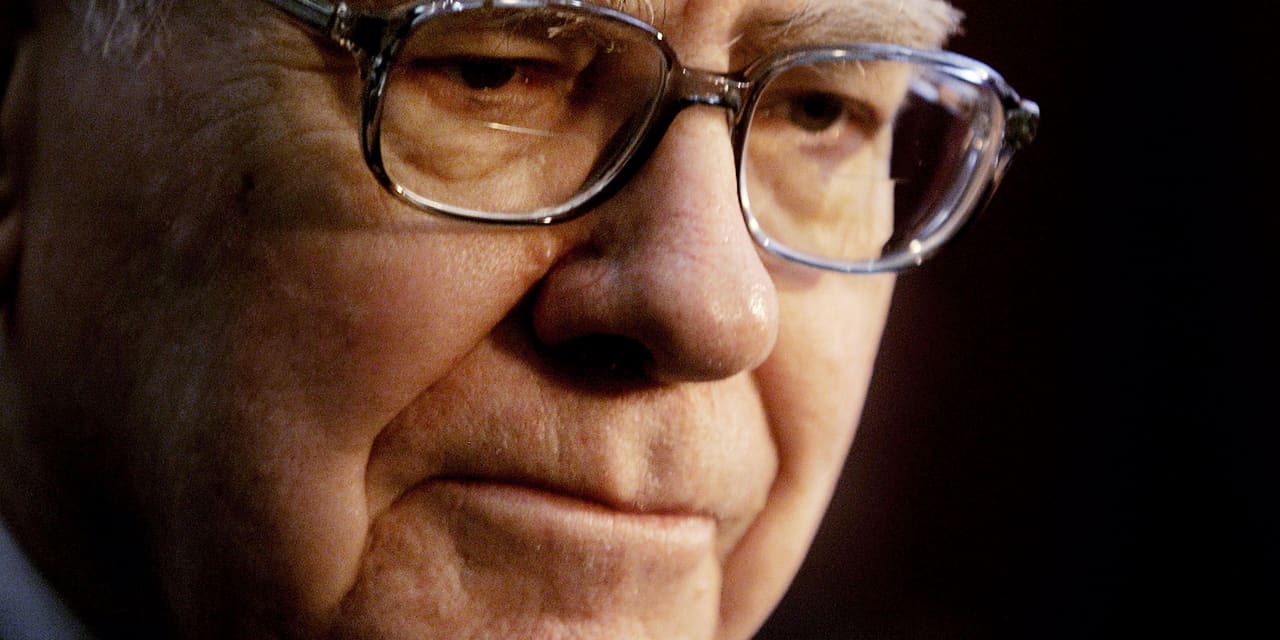Warren Buffett is no fan of the bond market.
At a time when every professional fixed-income investor and strategist seems to be recommending the purchase of bonds, Warren Buffett isn’t buying that view.
Berkshire Hathaway’s
investment portfolio that supports its huge insurance business is heavily tilted toward stocks and cash. The company’s bond portfolio is trivial in comparison. Insurers invest the proceeds from insurance premiums and earn returns on those investments before paying out any claims.
Berkshire’s portfolio differs from virtually every major property and casualty insurer. Big insurers like
Chubb
and Travelers keep the bulk of their assets in bonds because insurance regulators and credit-rating firms essentially require it.
Buffett takes an entirely different approach. Berkshire held more than $360 billion of stocks, $167 billion of cash (mostly Treasury bills), and just $24 billion of bonds at the end of 2023. Nearly all those investments were held at its insurance unit. And the fixed-income portfolio is effectively like cash, with $19 billion maturing in one year or less. The bond portfolio fell by about $1 billion in 2023.
About half the bond portfolio is in international securities, and that’s believed to be the result of regulatory rules for Berkshire’s overseas insurance operations.
Compare Berkshire’s portfolio to that of Chubb, one of the top P&C insurers. Chubb had about 80% of its $136 billion investment portfolio in bonds at the end of 2023.
Berkshire takes a “barbell” approach of using stocks and cash because Buffett isn’t enamored of bonds—and hasn’t been for a decade or more—even with the rise in yields since 2022.
Buffett was rightly critical of bonds when the 10-year Treasury yielded less than 1% in 2020, saying that investors effectively were paying more than 100 times earnings for an asset with no hope of higher income.
At Berkshire’s 2022 shareholder meeting, Buffett talked about Progressive, a leading auto insurer, and how Peter Lewis—a former CEO and architect of the company’s growth for several decades—was creative on the underwriting side but acted like other insurers on investments by emphasizing bonds.
“Probably everyone in the insurance business would say that, well, we own bonds because that’s what people do,” Buffett said at the 2022 annual meeting.
Berkshire has been able to take higher risks with its investment portfolio in emphasizing stocks—to its great benefit—because it keeps a huge insurance surplus, or asset cushion. Its ratio of annual insurance premiums relative to its surplus is a fraction of that of its peers.
And Berkshire maintains a huge cash position (most of which resides at its insurance operations) as a substitute for bonds. Buffett could invest a chunk of that cash in bonds, but apparently hasn’t been interested in doing so.
His approach contrasts with the view of bond mavens, who say that investors should hold less cash and more bonds because short-term interest rates are heading lower and that bonds are a great value with inflation at 3% and going down. Bond prices and yields move inversely.
The bond market features Treasuries with yields around 4%, investment-grade corporate bonds yielding 5% or more, and junk bonds in the 7% to 8% area.
But Buffett likes the 5%-plus yields that Berkshire is getting on its Treasury bills. He has said he enjoys coming into the office on Monday when he can reinvest—or roll—the proceeds from maturing Treasury bills in new T-bills at the government’s weekly auctions. T-bill rates probably are headed lower in 2024 and 2025, but still could be yielding 4% next year.
With bonds down about 2% year to date as measured by key indexes, Buffett’s approach is looking pretty good so far in 2024.
On a personal level, Buffett isn’t a fan of bonds either. He has about 99% of his wealth in one stock—Berkshire Hathaway. That equity stake is now worth about $130 billion.
“I can’t remember a period since March 11, 1942—the date of my first stock purchase—that I have not had a majority of my net worth in equities, U.S.-based equities. And so far, so good,” Buffett, 93, wrote in his just-released shareholder letter.
Buffett’s approach with Berkshire’s investments and his own offers a contrast with the standard 60/40 mix of stock and bonds. There is nothing wrong with that approach.
But investors instead could follow Buffett and do a barbell and hold stocks and cash, with the mix depending on the investor’s risk tolerance for equities. With T-bills at 5% now, investors aren’t giving up much yield to be in cash. It’s a strategy worth considering.
Write to Andrew Bary at [email protected]
Read the full article here




